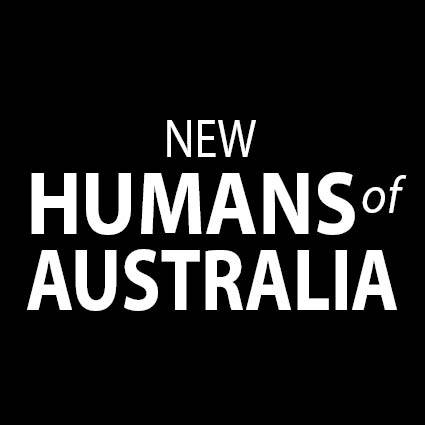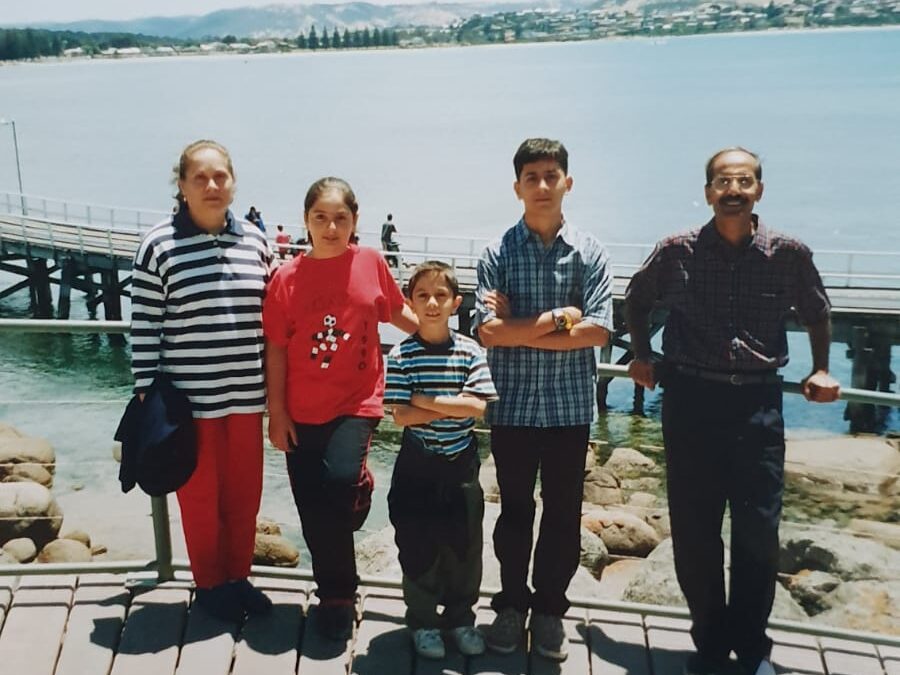I came to Australia by boat when I was 9 years old. Our family had to leave Iraq when their lives were put in danger by Saddam Hussein for political reasons, and we heard that this was the only immediate option for us to get away. At that time, we’d never heard of Australia, and had no idea how far away it was. But my parents sold all their assets in Iraq, and we made our way to Indonesia.
The next morning, we were taken down to the water at 2 am. It was pitch black, and all we could hear were children crying. We walked down to the end of a long jetty, where a man shoved us onto the boat, and told us the kids and the mums would be in one section and the dads in another. I still remember it was really hard for me to let go of Dad’s hand. We were put into a dark room where we could hear other people, but it wasn’t until sunrise that we saw all the kids huddled around their mothers.
The men were kept on deck. They cooked the rice, our only food, and I remember smelling the burn of the rice all the time. My mum didn’t touch a bite for the whole journey. People were throwing up everywhere, and no-one wanted to eat because no-one wanted to go to the toilet, which was just a hole in the deck shared with everyone.
After 5 days, the boat just stopped. Afterwards, we found out that the drivers had burned the motor of the boat so that we wouldn’t be able to leave Australian waters. It was the stupidest decision because there was no land in sight, and not even a sign of the navy. By then, there wasn’t much food left, so people were fighting everywhere, and everyone just wanted to kill the drivers.
Luckily, the navy arrived the next day, and took all the mums and the kids on board. We were relieved, but at the same time scared, because their boat was so huge, and coming from Iraq, we didn’t really know if we could trust the government. We were taken first to Darwin, followed by a long journey across the desert to the Woomera Detention Centre. At that time, there were just tents there and a couple of little caravans where they interviewed us. As we entered the interview, they said, ‘You are no longer identified by your name’ and tagged us with a band around our arm. I was ‘POK 003’.
It was a strange time. The kids attended school taught by some of the parents. But mostly, people just hung around waiting. After around four months, people became impatient and upset with the uncertainty of not knowing what was happening. Some people were admitted to the psych camp because they were suicidal, or had gone on hunger strikes or were planning riots. The purpose of the riots was to attract the attention of the media, because we weren’t sure if anyone in Australia even knew that we were there in the middle of the desert.
My family was the first family to leave, 11 months after we arrived. We were taken to Adelaide by bus. It was a bittersweet feeling, as we were still worried about how we were going to live. But it was amazing to be outside after all that time, and when we arrived in Adelaide, we just fell in love with it – it was so green and beautiful.
We studied a special English program for a few years before transitioning to normal school. I was the only Middle Eastern, but it was surprisingly OK. I was always proud of who I was and open about coming to Australia by boat. Eventually, I melded into the school.
Next, I started a degree in Law. But a year later, my parents became physically tired from working in a factory for 7 years. My brothers and I wanted to find a way to help them, so we told them we wanted to start a business with them, and they finally agreed, with the condition that none of us stop our studies.
As we didn’t want something that served alcohol, we decided to open a shisha bar – the first shisha bar on Hindley Street! From the beginning, we wanted to share our culture, our food, and our music with Australians, not just with Middle Eastern people. At first, a lot of Aussies had no idea what it was about, so we used to do demonstrations about what the different teas were, and how to have a shisha. And people loved it!
Eventually, our business grew so much, we opened another one. Most of the people we employed were Syrian and Afghani refugees who needed a job. They loved working there, and we built a really strong sense of family, both with our staff and with our customers. It was really beautiful watching the two cultures – Middle Eastern and Australian – mix over a cup of tea. The atmosphere was always like, ‘Who cares where you're from, we’re just here to enjoy the music!’
After 7 years, our lifestyles changed, so we ended up selling the business to our staff. I went with my husband to Dubai for a few years, where I had two kids. But when I returned, we decided to open another business – Levant Eatery, and a few years later, we opened another one.
Mum and Dad are still involved in those businesses. But my brothers have started their own construction company, and I’m now waiting to be admitted as a solicitor so that I can finally start practising migration law.
We’ve all achieved a lot, but still there’s always a feeling when you are a refugee, that you need to show your parents what they went through wasn’t a waste – that it was all worth it.
Zainab
Iraq
Arrived 1999
Thank you very much to everyone who signed up to become a supporter last week – you are all helping to bring migrant stories into the spotlight. If you also value these stories, please consider lending your support: www.patreon.com/newhumansofaustralia ❤️
Tell your story: https://rb.gy/kd5kqu
#refugee #refugeescontribute #refugeestories #Iraq #Adelaide #Australia #newhumansofaustralia #storiesnotstereotypes



